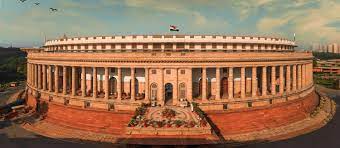LEGISLATION COMMENTARY ON CONTEMPT OF COURT ACT, 1971
Author – BHAVANA B K, STUDENT AT VIDYA VIKAS INSTITUTE OF LEGAL STUDIES, MYSORE
Best Citation – BHAVANA B K, LEGISLATION COMMENTARY ON CONTEMPT OF COURT ACT, 1971, ILE JUDICIAL AND LEGAL REVIEW, 1 (1) of 2023, Pg. 102-105, ISBN – 978-81-961120-0-4.
ABSTRACT
The term contempt of court can be easily understood as when we are disrespectful or the disobedience towards the court of law. This means that, the person who is willfully fails to obey the court order or directions disrespect the legal authorities and powers of orders. In judiciary system judge has the right to impose any sanctions regarding offences committed such as fine or can send the contemnor to the prison or jail for a certain period of the time and if the person is found guilty of contempt of the court of law. This term can also be understood about the term of the freedom of limits of the proceeding in judicial system. In India, The contempt of court is defined under section 2(a) of the contempt of court Act, 1971. In this concept, it can be described both Civil and criminal contempt. In Indian Constitution, there are mainly to articles were explain about the contempt of court at under article 129 and 142 (2).
All judges are given the judicial proceedings with certain reasonable and valid limit which it has the freedom to make any judicial proceedings in the courts. Anything which is to be curtails are stops it in making any judicial proceedings is to be necessity can amount to concept of contempt of court. The law contempt is based on sound public confidence Hindi administration of justice. The purpose of contempt jurisdiction is to up hold the majesty are presiding officer and dignity of law courts. The contempt of court Act, 1971 is defines contempt of court and also provides for the procedure, limitation, punishment and appeals as well as defenses available to contemnor. It is a fact that an independent and impartial judiciary is the sine quo non of a healthy society. The contempt of court includes failure to complay with requests, witness tampering with drawing evidence or defying court orders.
KEYWORDS: Contempt of court, civil contempt, Criminal contempt, Administration of justice, Fundamental rights, punishment, Remedy.
